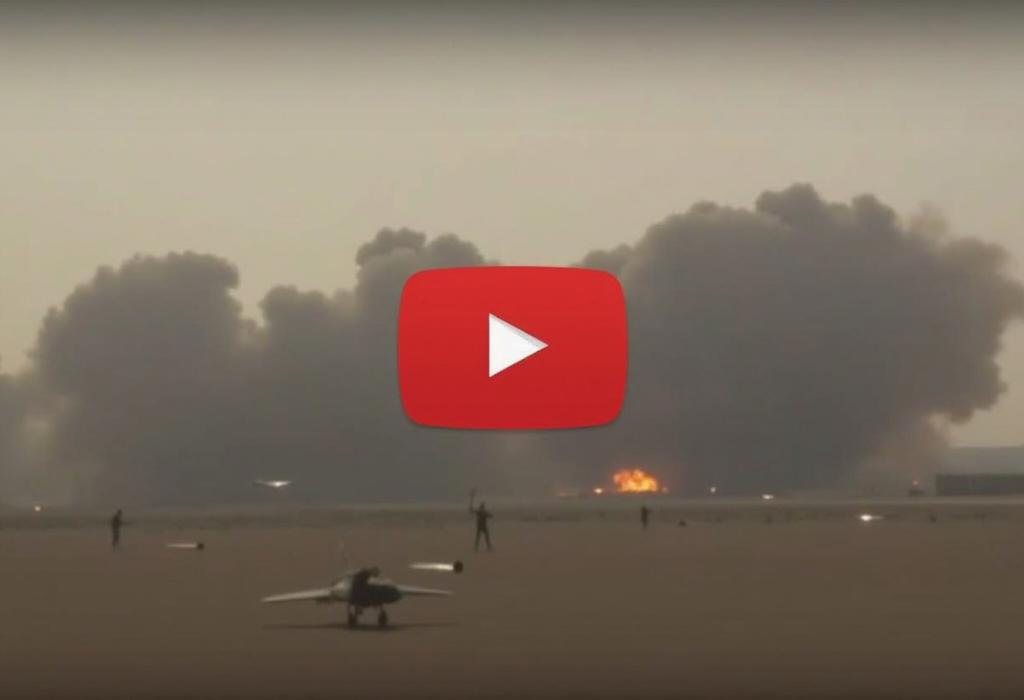In a bold statement showcasing his administration's military actions, United States President Donald Trump recently shared a video on social media, purportedly capturing an air strike that allegedly killed dozens of Houthi fighters in Yemen. The footage, appearing to be taken from a military drone or loitering aircraft, depicts individuals gathered in a formation before a sudden violent strike is executed, resulting in a massive explosion and dust cloud.
President Trump's accompanying caption, mocking the Houthi fighters while suggesting that they were gathering for an attack, portrays a message of triumph. He declared, "Oops, there will be no attack by these Houthis! They will never sink our ships again!" This statement emphasizes the administration's narrative of combating perceived threats in the region, particularly amid escalating tensions linked to Iranian influence.
Recent reports indicate that the U.S. has engaged in several air strikes against the Houthi group following their attacks on Red Sea shipping routes, which have reportedly intensified since the recent Israel-Hamas conflict began. Houthis have claimed responsibility for the attacks as a show of solidarity with Gaza, underlining the interconnectedness of regional conflicts and their implications for international relations.
In the wake of ongoing U.S. military operations, the death toll reported by Houthis has become a critical point of contention. While the U.S. government asserts that these strikes are aimed at neutralizing Houthi capabilities and their support from Iran—especially concerning Iran's nuclear ambitions—their tactical implications may raise concerns about civilian casualties and broader humanitarian consequences. Houthi sources claim upwards of 67 fatalities have resulted from U.S. operations, emphasizing the violent repercussions of this military engagement.
The White House reinforced the perspective of a successful military campaign, with press secretary Karoline Leavitt stating that the actions taken are critical to ensuring the freedom of navigation within the Red Sea and eroding Iran's ability to project power through the Houthis. This stance presents a simplistic view of a complex geopolitical landscape where military action directly correlates with political outcomes.
This report underscores the volatile situation in Yemen, where ongoing air strikes have resulted in significant civilian casualties, especially affecting women and children—as detailed in parallel reports from local health ministries and agencies. The details of these air strikes often lack nuance in media portrayals, and the loss of life among civilians tends to receive less attention than military objectives and successes.
In analyzing this unfolding situation through the lens of diplomatic strategy and military efficacy, it is clear that while the Trump administration conveys a message of strength and deterrence, the underlying human cost and broader geopolitical ramifications warrant deeper scrutiny. The interactions between military engagement and diplomatic initiatives are increasingly convoluted, particularly when violent reprisals invoke lasting instability in an already fractured region.
Collectively, this article encapsulates a tense narrative blending military strategy, domestic political messaging, and the enduring plight of Yemeni civilians caught in the crossfire. As the situation evolves, the ramifications of such engagements will undoubtedly set a precedent for U.S. foreign policy in the Middle East, further complicating efforts towards a lasting resolution to the Yemen conflict and broader regional tensions.
AD
AD
AD
AD
Bias Analysis
Bias Score:
70/100
Neutral
Biased
This news has been analyzed from 25 different sources.
Bias Assessment: The article demonstrates a moderate to high bias due to its framing of the U.S. military actions as justified and necessary while presenting little independent verification of claims regarding Houthi threats. The tone used to characterize military engagement implies support for U.S. actions without adequately addressing the civilian impact and humanitarian concerns, which skews the narrative towards justifying military interventions over exploring the complexities involved.
Key Questions About This Article




